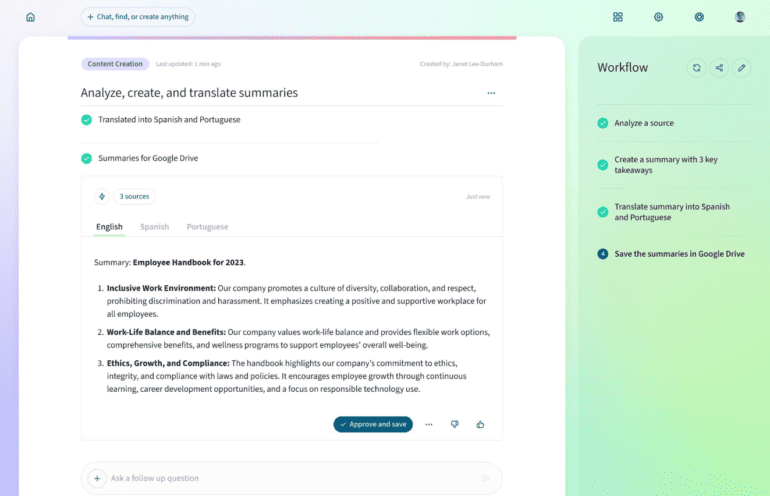TL;DR:
- Ron Williams, cybersecurity expert, leads Kindo, an AI productivity and security startup.
- Kindo offers a unique self-serve AI platform for enterprises with robust back-end integration.
- It focuses on enabling secure AI usage, supporting various AI models and 200+ SaaS integrations.
- Provides comprehensive control over data access, including PII filtering, while ensuring GDPR compliance.
- Targets functional end-users, empowering them to automate tasks using AI.
- Primarily caters to mid-market-sized companies.
- Successfully raised $7 million in seed funding from notable investors.
Main AI News:
Ron Williams, a seasoned cybersecurity expert with a track record at companies like Riot Games, Bird, and Clover Health, is now at the helm of Kindo, a pioneering AI productivity and security startup. Leveraging his vast experience, Williams is determined to alleviate the security concerns associated with AI workflows.
In a crowded field of AI startups, Kindo stands out with its unique approach. Co-founded by former Google engineer Bryan Vann and former OpenAI employee Margaret Jennings, Kindo touts itself as the first self-serve AI platform explicitly designed for enterprise back-end integration.
“We recognized the impending AI wave,” Williams explained to TechCrunch. “In the past, with every major tech wave, whether it was smartphones or SaaS, my team and I had to wait for the right tools to manage the new applications that accompany these waves.”
Kindo, previously known as “Usable Machines,” aims to solve this dilemma by offering enterprise-ready generative AI security, compliance, and centralized management. This empowers businesses to harness AI securely and confidentially. The platform facilitates connections to private, open source, or commercial AI models like ChatGPT or Google Bard, alongside support for over 200 SaaS integrations. Employees can leverage these capabilities to create no-code, AI-powered workflows. Crucially, Kindo also equips security teams with comprehensive visibility and control over AI usage within their organizations, enabling precise management of data access, including PII, content, and data filters. Williams emphasized, “It allows you to work within GDPR frameworks. One of our key features is you can filter PII before the AI model sees it.”
Moreover, Kindo offers centralized governance of employee access and permissions, audit logs, and detailed usage tracking and analytics for all AI prompts, data, and workflows.
Interestingly, while Kindo provides an array of tools tailored for enterprise developers and security teams, its primary target audience is not within these segments. Williams told that Kindo aims to empower functional end-users who want to harness the potential of AI. “There are plenty of startups building tools for developers, but they aren’t creating tools that empower marketing professionals to unleash the power of AI,” Williams noted. With Kindo AI, end-users can automate tasks such as Zoom video transcription, press release writing, and performance review generation.
Williams identifies the “sweet spot customer” as mid-market-sized companies. While Kindo is open to serving larger enterprises, its strength lies in catering to organizations without substantial investments in data science.
Founded in August of the previous year, Kindo has already piqued the interest of investors. The company successfully secured $7 million in seed funding in June, led by Riot Ventures, and featuring participation from Eniac Ventures, RRE Ventures, Marlinspike Partners, Flexcap Ventures, New Era Ventures, Andrew Peterson (founder of Signal Sciences), and Dave Politis (founder of BetterCloud).
Conclusion:
Kindo’s innovative approach to AI security and productivity addresses a pressing need in the market. By offering a self-serve platform with robust enterprise capabilities, it empowers businesses to harness AI securely and efficiently, potentially revolutionizing how organizations utilize artificial intelligence. Its focus on functional end-users and mid-sized companies positions Kindo as a disruptive force in the AI landscape, as evidenced by its successful fundraising efforts.

